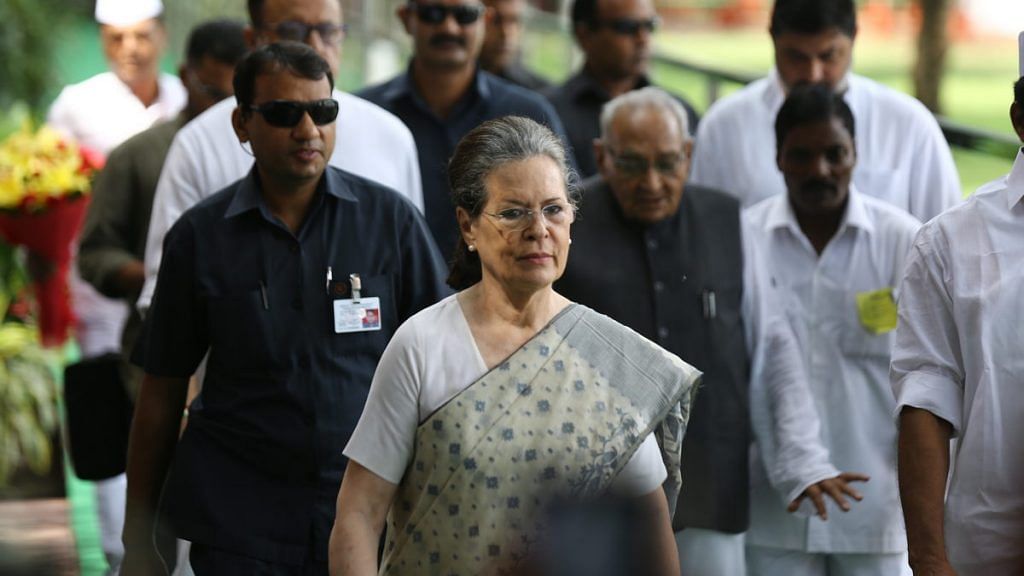New Delhi: Congress leader Sonia Gandhi exhorted citizens to “defend the Constitution from systematic assault” in a guest column she wrote Friday — the birth anniversary of scholar, reformer and the chairman of the document’s drafting committee, B.R. Ambedkar.
Gandhi said in the Op-Ed article: “At this junction in our nation’s history, we must act to defend the Constitution from this systematic assault. All Indians, wherever they stand… must play their part at this critical time.”
The former party chief in “The Telegraph” article talked about three “critical” lessons one could wean as guiding principles from Dr Ambedkar’s life and struggle.
“The first lesson is to vigorously debate and disagree, but ultimately work together for the nation’s interest,” she wrote. To justify this point, Gandhi said the history of India’s freedom struggle was full of “sharp disagreements” among Mahatma Gandhi, Jawaharlal Nehru, B.R. Ambedkar, Vallabhbhai Patel and others.
Talking about Ambedkar, the Rae Bareli MP wrote, “Even a glimpse at the debates shows that he was a true democrat. He discussed his ideas, heard vigorous, sometimes vicious, disagreements, defended his principles, and changed his mind when needed. He also shared credit with the other members of the Committee, his team, and the Congress Party”.
Today, “all of us are fighting to defend Babasaheb’s Constitution” and must remember this sense of unity of purpose despite differences in views, she wrote.
The second lesson Gandhi focused on was to encourage a spirit of fraternity, “the bedrock of the nation”. She quoted Ambedkar from his final speech, “without fraternity, equality and liberty (brotherhood of Indians) will be no deeper than coats of paint.”
The third lesson one could take from Ambedkar was to always fight for social and economic justice, she wrote. “Today, the challenges of ensuring social justice have taken new forms. The economic reforms of 1991 introduced by the Congress government have increased prosperity, but we now see growing economic inequality.”
She hit out at “reckless privatisation” of public sector units, which was “narrowing the system of reservation” that used to offer “security and social mobility” to Dalits, Adivasis and OBCs.
The veteran added the advent of new technologies may create opportunities to organise (economic activities) better and ensure greater equality, but was also threatening livelihoods. “The challenge is to learn from Babasaheb Ambedkar and ensure social justice in these changing times and act on our convictions in our public and private lives,” she wrote.
Liberty, equality, fraternity, justice threatened
“As we honour Babasaheb’s legacy today, we must remember his prescient warning that the success of the Constitution depends on the conduct of the people entrusted with the duty to govern,” Sonia Gandhi wrote. She goes on to say that the present regime was “misusing” and “subverting” institutions of the Constitution and “weakening” its foundations of liberty, equality, fraternity and justice.
According to Sonia, misuse of law to “harass” people was threatening liberty. Equality is “assaulted” by “favoured treatment” to chosen friends, even when the majority of Indians suffer economically, she wrote. Fraternity, she said, was eroded by “deliberately manufacturing” an atmosphere of hatred and polarising Indians against each other. “The resultant injustice is amplified by pressuring the judiciary through a sustained campaign,” the Congress leader said.
Also read: ‘PM dismantling 3 pillars of democracy, in denial over China issue’ — Sonia Gandhi attacks Modi govt
